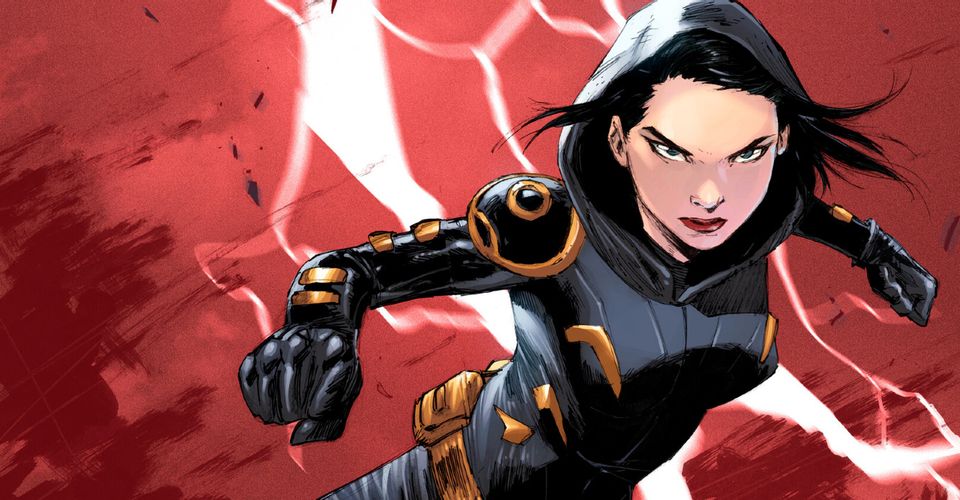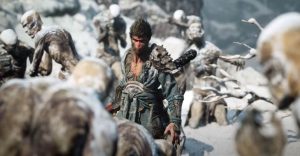Batgirl Wasn’t Welcome In the Bat-Family By A Key Member

The Bat-Family is one of the most recognizable groups in the DC Universe, and Cassandra Cain’s Batgirl is no stranger to it. Composed of members such as Robin (Tim Drake), Red Hood (Jason Todd), Nightwing (Dick Grayson), Batgirl/Oracle (Barbara Gordon), Batwoman (Kate Kane), Batwing (Luke Fox), and many more, the Bat-Family are certainly a force to be reckoned with in Gotham and beyond. The Bat-Family is a unique team within superhero comics because, as the name suggests, it is a family just as much as it is a crime-fighting group.
Like many other members of the Bat-Family, Cain has a tragic past. The daughter of assassin David Cain and martial artist Lady Shiva, Cassandra was trained by her father from birth to be the ultimate assassin. As such, David Cain deprived her of speech and human contact, and instead shaped her whole life around killing others. After being taken in by Bruce Wayne, Cassandra undergoes speech therapy and effectively joins the Bat-Family as the new Batgirl.
But, as Adam Beecher and J. Calafiore’s Batgirl #1-6 details, life with her newfound family was seldom ever easy for Cassandra, mainly due to the fact that Nightwing was massively suspicious of where her loyalties truly resided. Earlier, the villain Deathstroke had drugged Cassandra with a dart that allowed him control over her mind, forcing her to kill on behalf of the League of Assassins and her father. Cassandra was only freed from the effects of the drug once Robin gave her a counter serum that allowed her to see the full extent of her actions. Disillusioned with who she had become, Cassandra came back to the Bat-Family. There, she quietly swore to take revenge on David Cain by doing the one thing that the Bat-Family refuses to ever do: kill. While Nightwing’s suspicion of Cassandra is not entirely unfounded, he makes numerous efforts across the series that reinforce a hostility towards Cassandra that causes her to question her place in the only family she has ever known.

Dick Grayson’s treatment of Cassandra demonstrates how her violent past poses an existential crisis to the Bat-Family. While other members like Robin and Oracle are more lenient and understanding of Cassandra’s actions, seeing that her past is so traumatizing, Nightwing’s distrust of Cassandra exacerbates her existing self-doubt. Ultimately, because Nightwing reinforces uncomfortable truths about her past, Cassandra goes on a journey that explores the limits of the Bat-Family’s underlying culture of vengeance. It is precisely because of her violent past that Cassandra emerges as an integral member of the Bat-Family, suggesting that while some cycles of violence cannot be fully broken, their disruption can provide necessary catharsis.
Cassandra’s Conflict With Nightwing Reveals Tensions Within the Bat-Family

Cassandra has her first run-in with Dick Grayson after officially hatching her plan to find and kill her father. After entering the Batcave to use the Batcomputer, she reveals her guilt from using Batman’s resources for her own ends. Once she assures herself that, “if it stays a secret, [she has] no reason to worry,” Nightwing storms in and demands that Cassandra explain her reason for being in the Batcave alone. The two fight while Dick admits that he does not believe that Cassandra is truly back with the Bat-Family before Batman arrives with Robin, telling them, “We’re family. No fighting among ourselves.” As Nightwing argues with Batman, he is aghast at how Bruce could be taking her side “after everything she’s done.” It is clear from Dick’s actions that Cassandra was still seen by him as a villain, instead of a victim.
Nightwing’s failure to see Cassandra’s perspective reveals his own limited understanding of human morality, especially as it applies to the children of villains like David Cain. Considering that Dick Grayson himself is a product of his own tragic past, his antagonism towards Cassandra demonstrates his inability to understand victimhood in a more complicated, nuanced way beyond his own experiences. While it should be obvious that children do not get to choose the parents they are born to, Cassandra’s preoccupation with getting vengeance on her father shows how difficult it is for one to move on from the abusive trauma when it comes at the hand of one’s own parent. Their conflict throughout the series thus provides a much-needed lesson for Nightwing on the turmoil that victims-turned-heroes like Cassandra must deal with.
Cassandra Is Her Own Hero Within the Bat-Family

The series ends with Cassandra facing off against David Cain, requiring her to negotiate between the values she has learned from the Bat-Family and the ones she learned from her father. The struggle she experiences from wanting to achieve vengeance by killing her father mirrors that of Bruce Wayne, whose rule to never kill is put into place to prevent him from succumbing to his rage. Bearing the brunt of her father’s taunts and mind games, Cassandra comes close to killing him before he falls off the edge of a building out of her grasp. When Batman and Robin catch David Cain’s fall, Cassandra breaks down, sobbing from the conflict of her emotions. Batman reassures her by saying, “You didn’t kill him and you could have, after everything, you tried to help. You’re free of the worst things he taught you. But I know what you’re feeling. Like your mission isn’t over.”
The ending to the series cements Cassandra’s membership in the Bat-Family because she is liberated from the worst clutches of her past. She discovers that her impulse to kill her father in order to receive closure was nothing more than a symptom of the dehumanizing way he raised her. Batman and Robin’s acknowledgment of both her complex emotions as well as the difficulty of her actions also reflects a newfound sense of acceptance from her chosen family, one that she would never have had if she had killed David Cain. In this moment, Cassandra is neither the deadly assassin that her father had created her to be nor the untrustworthy figure that Nightwing pinned her to be. Instead, Cassandra is her own hero, in all of her own contradictions.
As Cassandra quietly slips into the Batcave in the series’s first issue, she narrates, “I am not a detective. Not like the man whose symbol I am privileged to wear. But I have learned a little from him.” Perhaps this best illustrates the ethos of the Bat-Family. Outsiders like Cassandra who come from such drastically different circumstances than Bruce Wayne rework the Bat symbol to further wrestle with the questions of how to be a hero after experiencing major trauma. Cassandra Cain’s storyline as Batgirl demonstrates that the Bat-Family is a haven for those who want to do good in the world in the wake of unimaginable pain.
About The Author

















